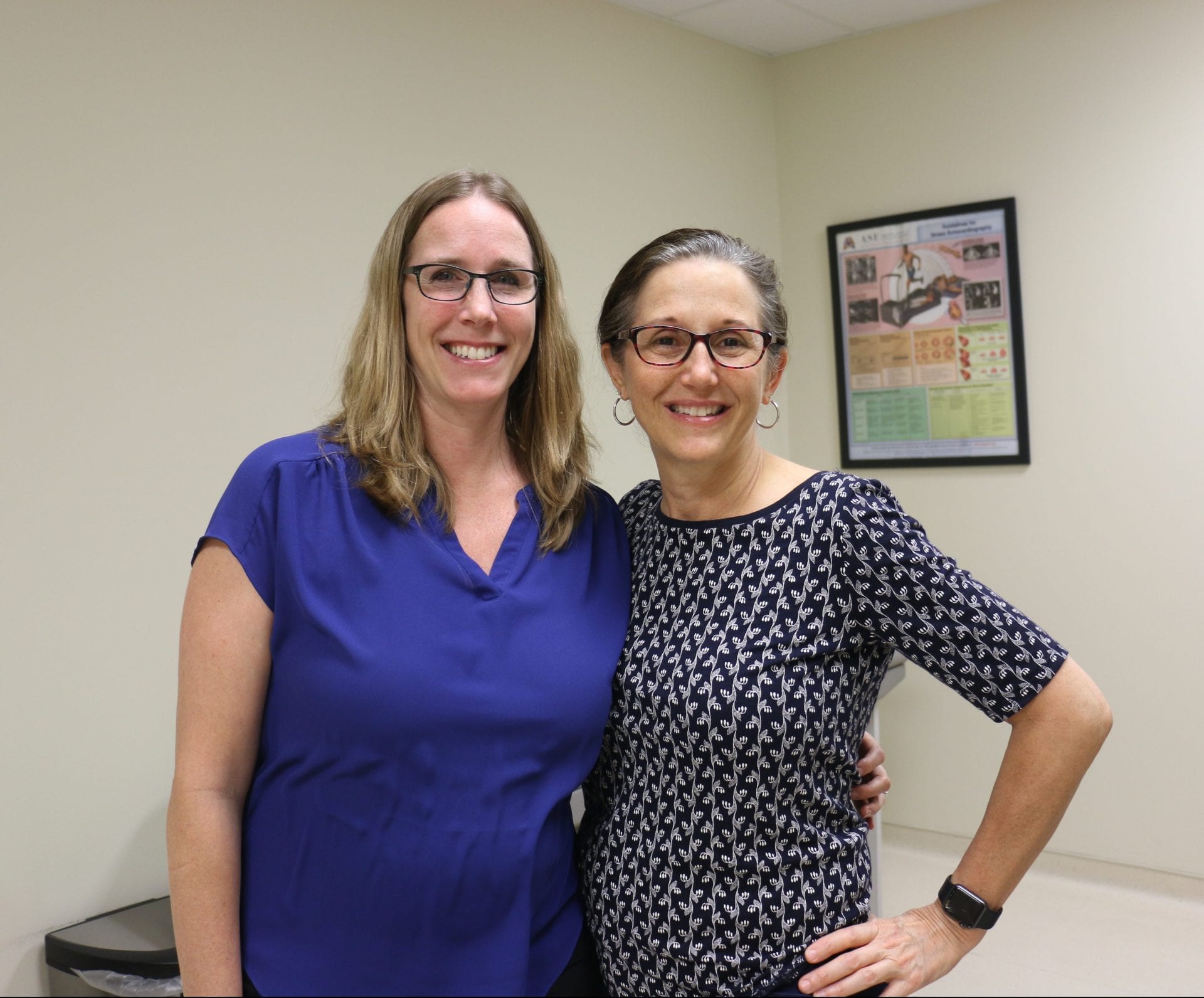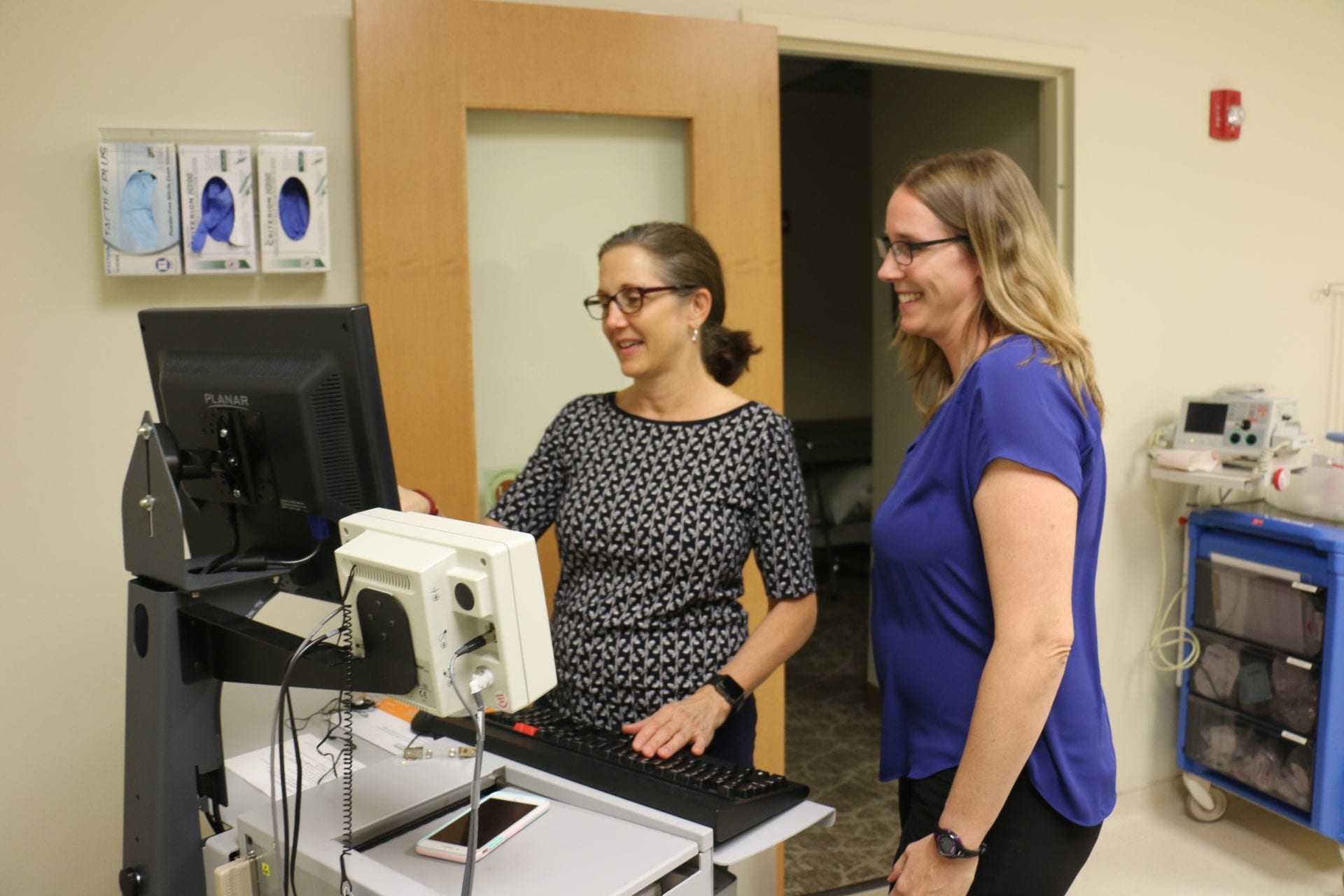UCF Health’s Integrated Service Makes Headlines

UCF Health’s Behavioral Health Director Cerissa Blaney and Director of Medicine Maria Cannarozzi.
Two University of Central Florida and UCF Health faculty are making headlines for their work and development of an integrated behavioral health service. News segments on WNDU in Indiana and KIMT in Iowa and Minnesota aired featuring Cerissa Blaney, Ph.D., and Maria Cannarozzi, M.D. The segments highlighted how the integrated system helped one of their patients lose weight and manage her painful arthritis.
The integrated health service is a combination of behavioral and medical services, available to patients as part of the same medicine practice.
Blaney is the behavioral health director at UCF Health and a clinical assistant professor in the Department of Psychology.
“One of the big advantages of this model is that it significantly increases access to care,” Blaney said. “We are able to offer a ‘one-stop shop’ where we can provide patient centered, team-based care in order to better treat their medical and behavioral health needs. These are often the key drivers of many medical appointments.”
 There is a big advantage for students as well. Blaney supervises clinical psychology doctoral students as they get hands-on experience treating patients in this integrated model. She supervises the students on-site during their clinical training at UCF Health, which offers them experience providing team-based care. This type of learning is often unavailable during graduate school.
There is a big advantage for students as well. Blaney supervises clinical psychology doctoral students as they get hands-on experience treating patients in this integrated model. She supervises the students on-site during their clinical training at UCF Health, which offers them experience providing team-based care. This type of learning is often unavailable during graduate school.
“It’s really great that we offer this because it is many of the students’ first time getting trained in providing integrated services and it’s where the field is in need of further development,” Blaney said.
Blaney cited research stating that the presence of psychologists in medical settings can help improve communication between providers and patients. Patients are more likely to show up for future behavioral health appointments if they are introduced to their behavioral health provider during their routine medical visits.
UCF Health is doing this. What the faculty there often do is introduce a patient to the behavioral health consultant during their medical appointments in what Blaney calls a “warm hand-off.”
According to a 2009 research paper published by the American Board of Behavioral Healthcare Practice, “Integrated care results in 85–90% of patients in the hallway hand-off entering treatment, while in the traditional referral system only 10% do so.”
Blaney said that is why many patients go with unmet behavioral health needs. She expects that this new integration can serve as a model for UCF Health to add to the services that it offers and to help refer patients to additional services as needed.
Dr. Cannarozzi is the director of medicine at UCF Health. She said that while the integrated healthcare approach is not new, it is uncommon in smaller training clinics like UCF Health. Its implementation increased with the passage of the Affordable Care Act, which expanded the coverage for mental health treatment in the United States. UCF Health has been using this model since fall of 2015.
The future of the integrated program at the clinic is clear. Both directors hope to continue expanding current programs and improving their patients access to care for behavioral health needs.
